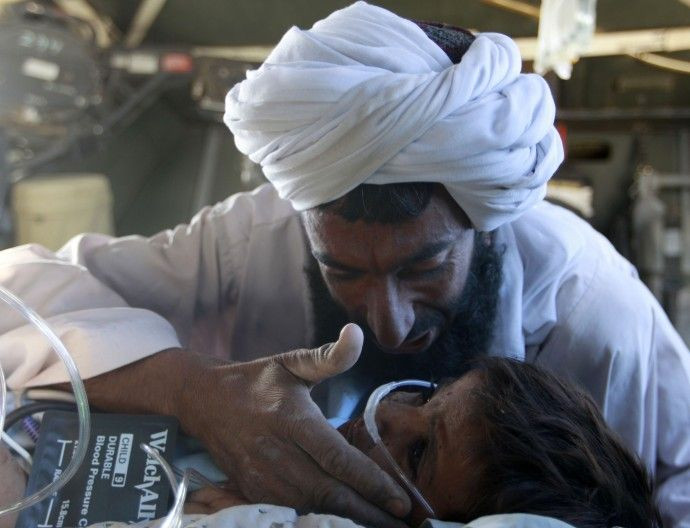Most Afghans don't yet know of 9/11 attacks: Study

Majority of Afghan population from the conflict-mired Helmand and Kandahar province are not aware of the 9/11 attacks in New York, a new study has found. In recent months, the military surge engaging Taliban in these provinces remained nearly unchallenged but the latest data indicates that military operations are viewed negatively by many Afghans. The demand for 'Pashtunistan', an independent Pashtun state, was also high up in the provinces.
Over 90 per cent of interviewees in the south are not familiar with the events of 9/11 which brought NATO-ISAF to Afghanistan, the report released by International Council on Security and Development (ICOS) on Friday stated.
It added that many of the Afghans were unable to describe what democracy is, and were suspicious of international motives and actions. Almost half of the interviewees also think it is good that international forces are starting to withdraw in 2011.
The report Afghanistan Transition: Missing Variables comes just a day after NATO leaders met in Lisbon to discuss transition of security to Afghan forces. Almost 61 per cent of Afghans interviewed also believe the Afghan security forces 'won't be able to provide security when foreign troops leave'. The study draws on findings from field research interviewing 1,500 Afghan men in October 2010.
The research, conducted by Afghan interviewers, asked questions of 1,000 men in Kandahar and Helmand provinces, the two provinces currently suffering the most violence in southern Afghanistan, a statement by the ICOS read.
Kandahar districts of Zhari, Panjwai and Kandahar City and Lashkar Gah, Marjah, Nawa, Sangin, and Garmsir districts in the Helmand were surveyed.
According to the report, almost 40 per cent of respondents believed that foreigners were in Afghanistan to destroy the country, to occupy Afghanistan, or to destroy Islam. More than 70 per cent of also view foreigners as disrespectful of their religion and traditions.
65 per cent (of the respondents) believe that NATO-ISAF kills more civilians than the Taliban, it said.
ICOS maintained that at the grassroot level, the dissemination of the international community's political narrative and public justification for its presence in Afghanistan is very limited.
This creates a vacuum which the Taliban easily fills with its own information campaign, it added.
Norine MacDonald, President and Lead Field Researcher of ICOS stated that securing the support Afghan people could be critical to the success of the transition stabilizing Afghanistan.
We need to explain to the Afghan people why we are here, and both show and convince them that their future is better with us than with the Taliban, said MacDonald.
The study also indicated 81 per cent of Afghans think that Al-Qaeda would return to the country if the Taliban regained power. More than half of the Afghans in the survey believe that Afghan police are helping the Taliban and 25 per cent of them think that Afghan police could end up joining the Taliban.
© Copyright IBTimes 2025. All rights reserved.





















